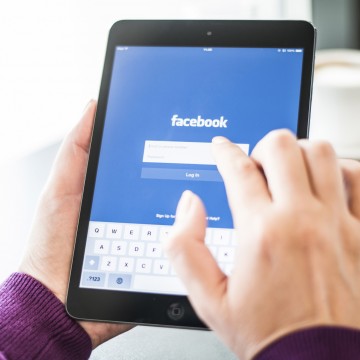New Survey Shows Continued Dominance of Facebook
Tuesday, January 13, 2015

It remains far and away the most popular social media site with nearly 6-in-10 Americans using the site. In comparison, the other major social media sites, LinkedIn, Pinterest, Twitter and Instagram are each used by about 1-in-5 Americans. Even more important, Facebook users are highly engaged with the site; 7-in-10 of them access it at least once a day and nearly half of users do so several times aday. The pervasiveness of Facebook can be seen by the fact that more than 3-out-of-10 people age 65 and over--the demographic with the lowest percentage of internet users--are now on Facebook.
The value of Facebook is enhanced by the fact that people give more credence to information that they receive from family and friends than they do to information gleaned from advertising or television news. It gives so called ‘influentials or opinionleaders’- the one in ten of us-who tell the rest of us where to shop, what news stories to click on, and what candidates to support-a way to magnify their influence beyond their neighborhood or individual family. In other words, it amplifies ‘old-fashionedword of mouth”—still the strongest persuasion tool around.
For example, the ability of people to share with their friends and family the articles and videos they think are important and interesting is democratizing a gate-keeping power over information that used to be mainly in the hands of newspaper editors and television news directors. Facebook andother social media sites are also a way for more casual news consumers to get information ‘incidentally’ while they are going to these sites for other reasons, potentially expanding the number of citizens better informed about public affairs.
Further, in the 2012 election more than one-in-five registered voters shared who they were supporting for President on social media. Smart election campaigns at all levels from presidential down to city or town council now devote resources to getting their messages out through social media by enlisting volunteers to share informationand videos with their Facebook friends The average facebook user has 155 friends, according to the survey. And people who are politically interested and active Facebook users often have friend networks of more than 1,000.
In our new era of niche media, in which the top rated televisionshows such as NCIS are only turned on in one-out-of-ten households,Facebook’s reach is truly impressive. Those who know how to use this social media platform by enlisting ‘opinion leaders and influentials’ to shareinformation with their networks of ‘friends’ gain a big competitiveadvantage in today’s marketplace—whether they are attempting to sell products,ideas, or candidates.
Rob Horowitz is a strategic and communications consultant who providesgeneral consulting, public relations, direct mail services and polling fornational and state issue organizations, various non-profits and electedofficials and candidates. He is an Adjunct Professor of Political Science atthe University of Rhode Island.




Follow us on Pinterest Google + Facebook Twitter See It Read It